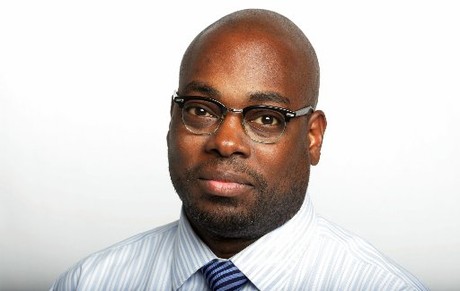What is your ideal America?
For this upcoming Independence Day holiday, we want to know your thoughts on America.

Stephen Henderson:
The Fourth of July is Saturday, when we pause to celebrate the signing of the Declaration of Independence – the document that sparked this nation’s official separation from England, and the beginning of a country that would grow to dominate the globe in fewer than two centuries.
We’re going to spend the whole hour today talking about a single question – what is your America? How do you define this country and its ideals? And how do you feel about it – where it’s headed, where it has been, what it’s like for you, and your children right now.
But first, I want to talk a little about what America means to me, 239 years after the Declaration was signed.
In some ways, I can’t help but think the worst of America is on display today, in a way that even the founders who signed the declaration would have had trouble predicting. Think of the systematic burning of southern black churches, coupled with the increasing strife over relationships between police and African American communities, and the ongoing, burgeoning conflict over the sense of growing inequality in many parts of the country. It all makes it seem as though progress, one of the most inherently American expectations, is horribly, and cynically, elusive right now.
Of course, the country’s racial divisions were always baked into the infrastructure of the constitution and other founding documents, but even the people who wrote them seemed to believe we would one day reckon with them, and probably overcome.
Would they marvel at what’s going on today? Would they feel a sense of failure, or shame? Would the infernal fight over an insurrectionist flag, flying over the grounds of a state capitol, bewilder the hope they had for this nation when it began?
I think the answer is yes and no.
For as much as we remain stuck in our old divisions, and dogged by inequalities that do none of us proud, this country is perhaps the one place on the planet where progress, and change, are inevitable, and equally baked into the political and cultural infrastructure. That’s because more than anything else, America is an idea. It’s not the product of religious fervor or ethnic clamoring for a safe place to call home. It’s a creation fueled by words that express the very essence of what liberty and equality mean. 1776 was not just about starting a war. It was about building an ideal – one that we continue to build today, even as we struggle, 239 years later, to make the words of the Declaration mean the same thing for everyone.
I’ve been telling a story about American progress for a while now that I think is really resonant today. My father was born in Mississippi in 1933. He grew up, went to serve his country in Korea, and then came home to state where he could not vote until he was in his mid-30s. His story follows near lock-step with America’s frustrating narrative through the 20th century – the struggle to give full life to the Declaration of Independence and the Constitution was still raging, nearly 100 years after the Civil War.
But here’s another truth: My son and daughter—my father’s grandchildren—the first president they’ve been aware of is a black man whose skin color is an awful lot like theirs. For them, the whole idea of president is bound up in Barack Obama.
That’s two generations – from my father to my children – in which the reality of the American experience flipped tremendously, and surged toward equality.That doesn’t mean the fight is over. It doesn’t mean the problems are solved.It just means we live in a country where incredible progress, in a relatively short period of time, is more possible than it is just about anywhere else on the planet.Think, on another front, of how quickly we have gone from gay people being able to be arrested for having sex, to the legalization of gay marriage nationwide.
My America? It’s about both the unfulfilled promises that define her – AND the wonderfully democratic infrastructure that allows us to make her better…
We should never lose sight of either of those dynamics.
Views expressed in Stephen Henderson’s essays are his own and do not necessarily reflect those of WDET, its management or the station licensee, Wayne State University.
